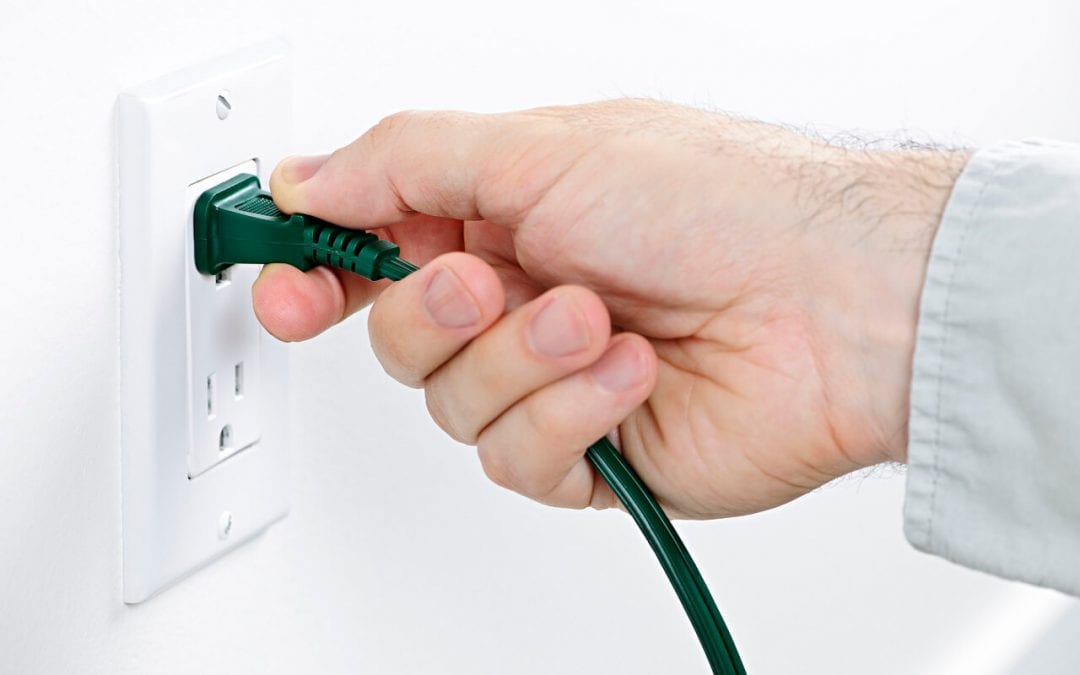Your home should be a place where you and your family are safe. Unfortunately, electrical issues can potentially threaten safety. These residential electrical safety tips will help you avoid injuries and fire hazards at home.
Use the Correct Wattage in Fixtures
It’s possible to create electrical problems by using the wrong types of bulbs in light fixtures. Most light fixtures have a label that says the correct wattage to use. You may have some fixtures that don’t clearly identify how many watts it can handle. Stay conservative and use 25-watt bulbs in unmarked ceiling fixtures. Use 60-watt bulbs for other unmarked light fixtures.
You can lessen overheating risks by using LED bulbs. LED bulbs also keep your power bills lower.
Electrical Safety Tips for Outlets
One of the best residential electrical safety tips to follow is to stop overloading outlets. Hot outlets are a sign that they’re overloaded or have some sort of wiring problem. Use these tips regarding electrical outlets:
- Power strips provide extra outlets, but they don’t alter how much power the main outlet can handle.
- Don’t plug appliances into multi-outlet converters or extension cords.
- Use smart plugs. They monitor power loads and will shut down appliances if an outlet starts overheating.
- Don’t plug more than one heat-producing appliance into an outlet.
Residential Electrical Safety Tips: Store Cords Appropriately
You need to store unused cords correctly to prevent fire hazards when you put them back into use. Don’t allow pets or children near stored cords because they may chew on them. Refrain from wrapping a cord around an appliance. This practice has a tendency to stretch the cord and cause wear. Keep all cords away from hot surfaces so you don’t damage the wires and insulation.
Replace Damaged Cords
You can experience electrocution or fires when using damaged power cords. Inspect all extension and power cords for signs of cracking or fraying before using them. Throw away any cords that show signs of wear and tear. Never staple power cords into place or run them under furniture or rugs. One of the best ways to eliminate the need for extension cords is having an electrician add more outlets.
Keep Unused Appliances Unplugged
Unplugging appliances when they’re not being used is a way to keep them from overheating or getting damaged from power surges. This practice will also keep your power bill down. Appliances place a drain on electricity even when they’re not in use.
Keep Water Away from Outlets and Electrical Appliances
Keep water away from electrical appliances and cords. Water combined with electricity will cause electrical shock. Keep your hands dry anytime you need to touch an appliance, cord, or wall outlet. Make sure all electrical equipment is kept away from:
- Bathtubs
- Houseplants
- Sinks
- Showers
Keeping Exhaust Fans Clean is an Electrical Safety Tip
Any appliance with an exhaust fan can become a fire hazard when the fan gets clogged or dirty. Debris makes the appliance work harder and this leads to overheating. Not only will your appliance wear out faster, but it might cause a fire.
Follow the above residential electrical safety tips to keep your home safe.
Exceptional Engineering Home Inspections serves Maricopa County with home inspection services. Contact us to book your appointment.

